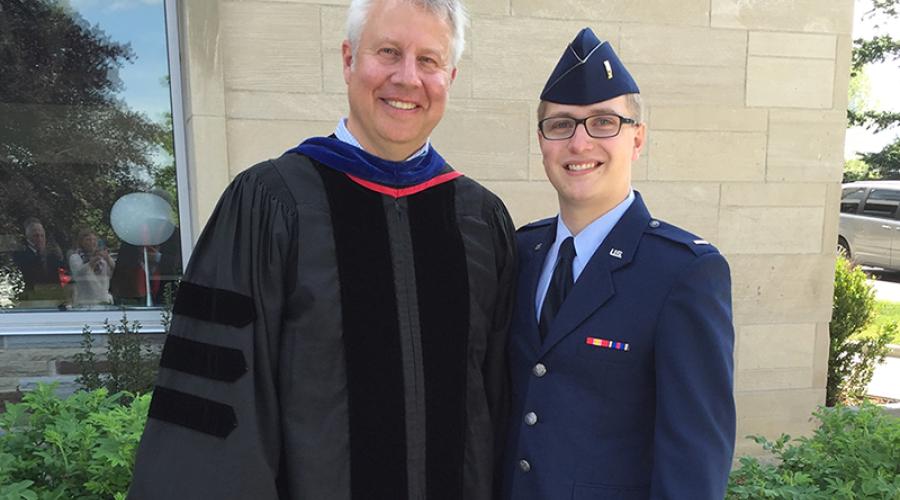
Real-World Impact
Air Force 2nd Lt. Scott Seidenberger ’16 has found people are often surprised that military officers have college degrees.
Seidenberger has also found that engineers often overlook the military and instead take jobs at private companies such as Lockheed Martin, Boeing and Microsoft.
Those findings were drawn from his ILR senior honors thesis, through which he conducted practical research that could be applied to a real-world challenge: attracting top technical talent to the Air Force or National Security Agency.
“We surveyed hundreds of Cornell undergraduate engineers,” said Seidenberger, speaking by phone from Tyndall Air Force Base in Florida as Stealth fighter aircraft flew above him.
His work drew the attention of the Air Force’s Airman Magazine, which featured him in its September issue.
Seidenberger was attracted to Cornell for its strong military history and its diversity of programs. “I was one of those kids growing up who when people would ask me what I wanted to be, I had a different answer for them every week,” he said.
The military is a place where he can contribute to real-world impact, from humanitarian missions to technological developments, said Seidenberger, who trained for the military as a Cornell student through the university’s Reserve Officer Training Corps.
“I couldn’t think of a better profession that has such a direct impact on the people around me. Being an officer, I get to lead people and be a direct factor in national and international affairs.”
At Cornell, professors from ILR and other colleges helped him analyze data, apply advanced statistical techniques, ask sophisticated questions and interpret data in nuanced ways. “I got immense help,” Seidenberger said, “tons of hands-on support.”
Seidenberger also gained support from his peers. He and other student researchers would routinely gather for lunch to discuss their work, encourage and challenge each other.
“Truthfully, I owe so much to Cornell and my peers,” Seidenberger said.
“The big takeaway coming out of Ithaca is the relationships I’ve had with my peers, not just personal relationships, but the professional aspect. Kids who go to Cornell are not the kids who settle for the average.”
Today, Seidenberger is training in a year-long air battle manager program. “Our primary function is to direct all the airborne assets in an area. If the Air Force was a football team, we would be the offensive coordinators.”
Seidenberger said he would eventually like to earn a doctorate in computational social science, studying computers and statistics to better tackle complex workplace issues such as talent management and recruitment."


